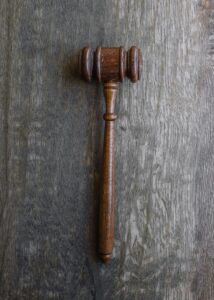Our readers are well aware of the fact that companies can be held vicariously liable for Telephone Consumer Protection Act (“TCPA”) violations. However, a recent decision from an Illinois federal court highlights the importance of carefully analyzing whether the complaint actually asserts that TCPA vicarious liability can be plausibly inferred from the allegations. Below, we discuss the decision and stress the importance of carefully examining TCPA complaints, especially those which seek to hold companies vicariously liable for TCPA violations.
Complaint Fails to Allege TCPA Vicarious Liability
In Lightfoot v. SelectQuote Inc., Plaintiff filed a class action complaint seeking to hold Defendant vicariously liable for TCPA violations. Specifically, Plaintiff alleged that Defendant engaged in a telemarketing campaign to sell its insurance products by using third-party lead generators to place unsolicited calls on Defendant’s behalf. Plaintiff brought this action against Defendant on behalf of a putative class that included “[a]ll persons in the United States who (i) received a pre-recorded telemarketing call, (ii) on their cellular telephone, (iii) from Defendant (or an agent acting on behalf of Defendant).” In response, Defendant filed a Motion to Dismiss the Complaint, arguing that Plaintiff failed to adequately allege TCPA vicarious liability for the actions of third-party lead generators. The Court agreed and granted Defendant’s Motion.
Although the Court recognized that companies can be held vicariously liable under the TCPA for the actions of third parties, the Court granted Defendant’s Motion because Plaintiff failed to plausibly link Defendant’s conduct to the call that Plaintiff purportedly received. In its decision, the Court focused on the pre-recorded message Plaintiff received, which did not include any information linking Defendant to the subject call. Accordingly, the Court granted Defendant’s Motion to Dismiss.
Carefully Read Those TCPA Complaints!
This decision should serve as another reminder that it is imperative to meticulously scrutinize TCPA complaints. Oftentimes, TCPA complaints merely recite the statutory language and fail to allege with any specificity conduct linking the named defendant to the alleged violation. By recognizing that the allegations in Plaintiff’s Complaint failed to associate Defendant with the subject call, Defendant avoided potentially costly litigation. Because TCPA lawsuits are regularly filed as class actions, failing to assert defenses can have catastrophic consequences. Fortunately, the attorneys at Klein Moynihan Turco (“KMT”) have successfully defended numerous companies involved in TCPA lawsuits. Moreover, the attorneys at KMT have a wealth of experience advising clients on TCPA and general telemarketing law compliance.
If you need assistance with updating your telemarketing practices and procedures or have been sued for violating the TCPA, email us at info@kleinmoynihan.com or call us at (212) 246-0900.
The material contained herein is provided for informational purposes only and is not legal advice nor is it a substitute for seeking legal advice from an attorney. Each situation is unique, and you should not act or rely on any information contained herein without seeking the advice of an experienced attorney.
Attorney Advertising
Photo by Rohit Tandon on Unsplash
Similar Blog Posts:
Surge in TCPA Quiet Time Litigation




